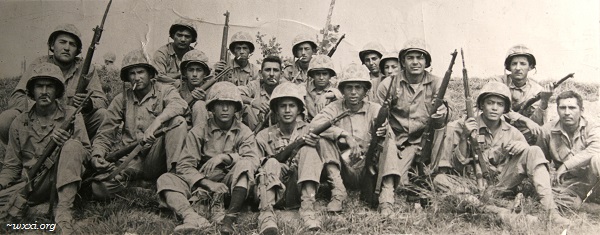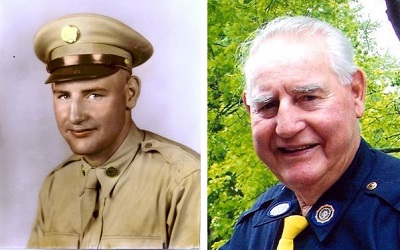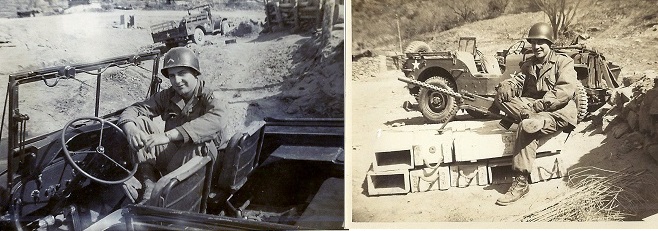


Cerro Gordo County Iowa
Part of the IAGenWeb Project
|
The Globe-Gazette
 MASON CITY — A plaque in the lobby of the Cerro Gordo County Courthouse honors the men and women from the county who have given their lives in military service. Eighteen names are enshrined from the Korean War — 13 from Mason City, three from Plymouth, one from Rockwell and one from Clear Lake. Nearly 34,000 troops died in battle. Almost 20,000 died of other causes. More than 100,000 were wounded and 8,000 were declared missing in action. And yet, it has often been called “the forgotten war,” the one that occurred between World War II and Vietnam.
by Ashley Miller, Tuesday, January 03, 2017

Although the pay wasn’t much at the time — $145 a month plus $45 combat pay — Kruckenberg was pleased with the food. “The first morning I went to breakfast, I was going through the chow line and they asked me how I wanted my eggs done,” he wrote. “I didn’t expect that.” In charge of communication, Kruckenberg’s first duty was working on the wire section’s switchboard. Later as a wireman, he went to the Main Line of Resistance several times a month.
 A buddy of his was killed there, hit by a mortar shell as he looked through a little window in the basket. “It blew his head off,” Kruckenberg wrote. “The bad thing about this is he could have been home.” After receiving the Bronze Star for laying wire under fire, his friend re-upped for six more months in Korea. In May 1953, Kruckenberg had to help load weapons during an advancement.
The night of the ceasefire in July 1953, Kruckenberg said the enemy shot “everything they had at us” before going quiet at 11 p.m. “The next morning we went up on the line, the North Koreans were waving at us and we waved back,” he wrote. The rest of his time there, Kruckenberg laid new wire “just as like if we were at war,” and moved around often. His battery commander asked him if he wanted to re-enlist and stay six more months in Korea. “I said, ‘no,’ I wanted to get back to Iowa,” wrote Kruckenberg, who achieved the rank of sergeant. He received word in December 1953 he was going home. Once back home, Kruckenberg worked at AMPI for 44 years until his retirement in 1996. He was a 60-year member of the American Legion Gallagher Post 208 in Rockwell and a lifetime member of the VFW in Mason City. As an active member of those organizations, Kruckenberg was often part of Veterans Day programs at schools. Kruckenberg recalls in his autobiography a conversation he had on that holiday in 1998 with a friend who also served in Korea. “I told him I didn’t like being there at the time, but I wouldn’t give up the experience for anything,” he wrote. “A school teacher in front of me turned around and said, ‘Just like school, huh?’” His son, Patrick Kruckenberg, remembers him as a “quiet man” who had “silent victories.” “He was proud of his service and his scrapbook,” daughter Kris Kruckenberg said via email.
Photographs courtesy of Globe-Gazette
|
<